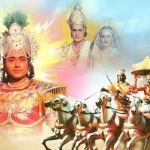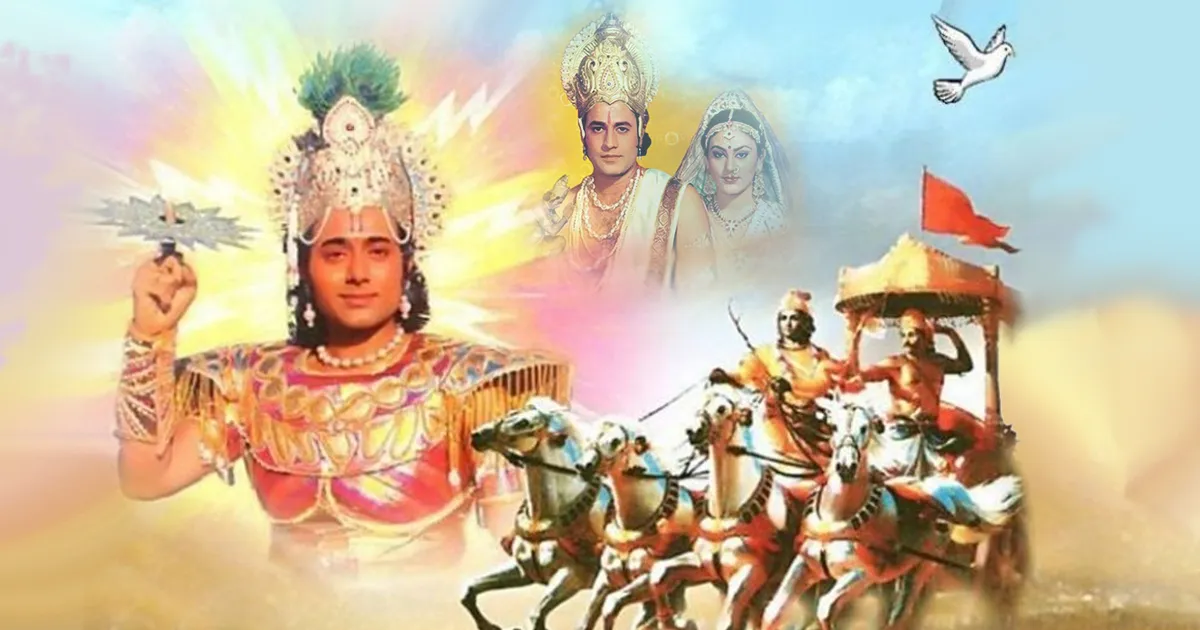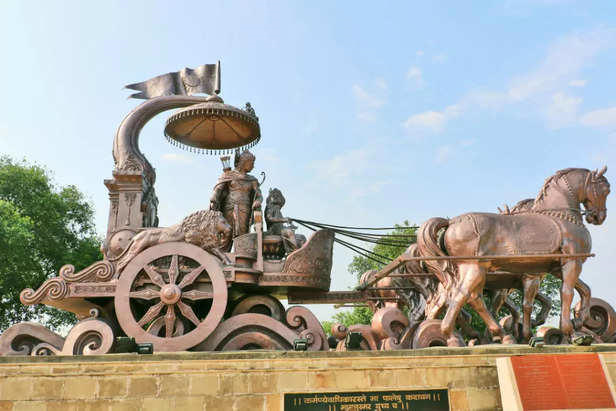@SanatanYatra.The Ramayana and the Mahabharata are two of the most important epics in Indian literature, deeply ingrained in the cultural and spiritual fabric of the world. Written thousands of years ago, these texts are more than just mythological tales. They are repositories of moral wisdom, philosophical debates, and complex human emotions. In an age where the world is becoming increasingly interconnected but ethical and moral frameworks seem to be challenged, these ancient stories offer timeless lessons that are still incredibly relevant today.
The Ramayana
The Ramayana, composed by the sage Valmiki, tells the story of Lord Rama’s journey to rescue his wife Sita from the demon king Ravana. At its core, the Ramayana explores the concept of dharma (religious duty) and the importance of following moral principles even in the face of adversity. Rama’s unwavering commitment to his dharma, his devotion to his family, and his role as a just ruler serve as a model for ethical behavior.
In today’s world, where the lines between right and wrong are often blurred, the Ramayana encourages individuals to stay true to their values and principles. It teaches that righteousness is not always easy, but it is essential for the wider good. In a society where individual gain often overrides collective welfare, the Ramayana’s teachings of sacrifice, loyalty, and duty hold vital relevance.
The Mahabharata
The Mahabharata, written by the sage Vyasa, is one of the world’s longest epics. It tells the story of the Kurukshetra War, a battle between two factions of a royal family, the Pandavas and the Kauravas, for the throne of Hastinapur. At its core, the Mahabharata explores the complexities of human nature, decision-making, and the moral dilemmas we face in times of crisis.
One of the most important elements of the Mahabharata is the Bhagavad Gita, a dialogue between Lord Krishna and the warrior Arjuna. In this dialogue, Lord Krishna offers Arjun guidance on how to transcend the complexities of life, duty, and selflessness. Krishna’s teachings on the importance of performing one’s duty without attachment to the results are deeply applicable to contemporary life.
In a world where we are constantly faced with decisions that involve balancing personal ambition, social responsibility, and moral values, the Mahabharata’s exploration of morality and righteousness provides much-needed clarity. The text challenges the black-and-white notion of good and evil, acknowledging the grey areas where many of us find ourselves in our personal and professional lives.
Relevance in Modern Times
The relevance of these two epics in the modern world lies in their ability to address universal themes that transcend time and geography. Whether it is the struggle for justice, the importance of maintaining moral integrity, or the impact of leadership, the Ramayana and the Mahabharata provide valuable perspectives for navigating the complexities of the human experience.
Leadership and Responsibility
Both epics emphasize the importance of strong, compassionate leadership. Lord Rama’s sense of duty as a king and Arjuna’s internal conflict about his role as a warrior both highlight the responsibility of leaders in improving society.
Morality and Ethics
In a world that often faces moral ambiguities, both epics provide frameworks for making ethical decisions. The exploration of right versus wrong in the Mahabharata and the portrayal of ideal role models in the Ramayana offer lessons on how to transcend moral dilemmas.
Family and Relationships
The Ramayana, in particular, teaches the value of familial bonds, loyalty, and sacrifice. In the Mahabharata, the complexities of family relationships and the consequences of betrayal are a powerful reminder of the importance of trust and respect within relationships.
Personal Growth and Self-Realization
The Bhagavad Gita, part of the Mahabharata, offers timeless guidance on self-realization, the importance of inner peace, and the pursuit of spiritual growth. In today’s world of constant distractions, the message of focusing on self-development and inner fulfillment is more relevant than ever.
The Ramayana and the Mahabharata are not just stories of gods and kings; they are a reflection of human nature and the eternal conflicts that define our existence. In a constantly changing world, these epics provide a stable foundation for understanding the complexities of life. They are more than ancient texts; They are living legacies that continue to inspire and guide generations, imparting timeless wisdom that is as relevant today as it was thousands of years ago. #SanatanYatra











